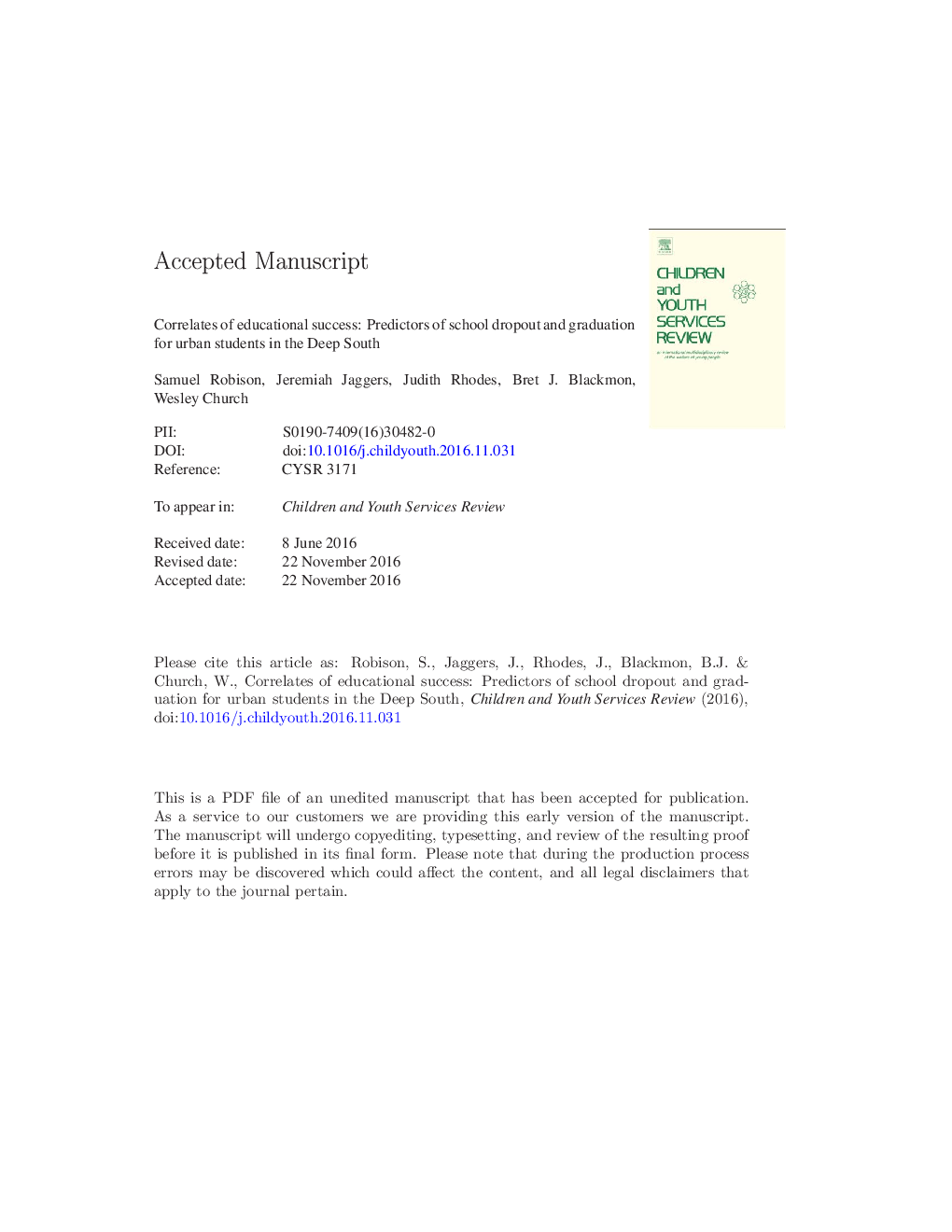| Article ID | Journal | Published Year | Pages | File Type |
|---|---|---|---|---|
| 4936557 | Children and Youth Services Review | 2017 | 44 Pages |
Abstract
This study examined a sample of primary and secondary school students with alternate school outcomes of high school graduation and school dropout. Using secondary administrative data from a state department of education and a state department of juvenile justice, two models are examined in the current study. Utilizing hierarchical mixed-effects logistic regression models, the relative impacts of demographic characteristics (race, gender, birth year), school-related factors (grade failure, free lunch status, average number of days missed per year, expulsions) and juvenile justice involvement were examined on graduation and dropout outcomes. Across models, juvenile justice contact and school expulsion were the best predictors of negative school outcomes; The findings also demonstrate that race was not as predictive of dropout as were other factors. Findings suggest that interventions, practices, and policies in schools that may prevent negative behavior and subsequent consequences (expulsion and/or juvenile justice contact) may impact the more distal outcomes of high school graduation and dropout.
Related Topics
Health Sciences
Medicine and Dentistry
Perinatology, Pediatrics and Child Health
Authors
Samuel Robison, Jeremiah Jaggers, Judith Rhodes, Bret J. Blackmon, Wesley Church,
